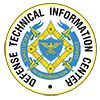From tackling homework challenges to drafting emails, people are discovering a vast array of applications for natural language processing tools like generative artificial intelligence (AI) engines. Now, researchers from Pacific Northwest National Laboratory (PNNL) and Harvard Medical School (HMS) are using this same kind of technology to build a knowledge base in order to guide decision-makers on vaccine development. Through the Rapid Assessment of Platform Technologies to Expedite Response (RAPTER) project, the scientists leverage machine learning and AI to search the scientific literature for knowledge on how to build effective vaccines against new infectious viruses and bacteria.
Historically, vaccine development is a lengthy and expensive process—often taking multiple years and millions of dollars to complete. Vaccines are typically made using one of several different strategies, or “platforms.” However, different strategies can generate different immune responses. With RAPTER, researchers figure out which strategy would work best for a specific virus or bacteria to maximize the value of immune responses from the host. The tool aims to help produce new vaccines more rapidly and with a reduced timeline and cost.


